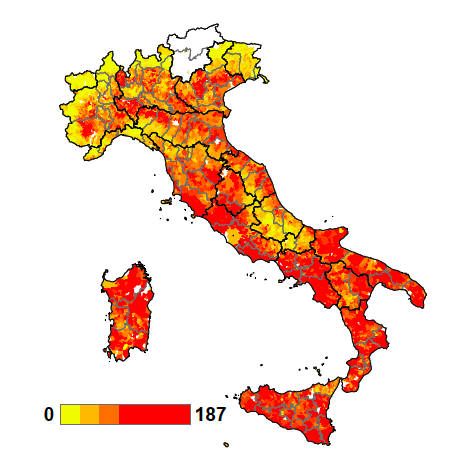Post developed by Katie Brown and Ugo Troiano.
In Italy, would be tax evaders hide money in houses. In response, the Italian government developed a “Ghost Buildings” program which used technology to identify and monitor buildings otherwise hidden from tax authorities. In total, the Italian government identified two million houses that were hidden for tax purposes.
How do voters respond to anti-tax evasion policy? Answering this question has been a challenge because tax evasion is illegal and is typically very hard to measure. However, the Ghost Buildings program offers a unique opportunity to investigate the issue. Center for Political Studies (CPS) Faculty Associate and Department of Economics Assistant Professor Ugo Troiano seized this chance in a working paper along with his co-author Lorenzo Casaburi who is a Postdoctoral Fellow at the Stanford Institute for Economic Policy Research (SIEPR).
The authors approached the research knowing that anti-tax evasion programs like the Ghost Building program hurt tax evaders while benefiting tax payers. Usually, one assumes evaders to be the minority and payers to be the majority. If this is the case, a program like Italy’s Ghost Buildings one should boost public opinion in support of incumbents as payers support the crackdown on evaders.
To test the effect in Italy, the authors mapped the identified Ghost Buildings to calculate a town-by-town concentration, as illustrated by the graph below.
Ghost Building Concentration
The authors also collected geographic and socio-economic data for the same towns. They found tax evasion to be more prevalent in cities, possibly because cities offer more opportunity to to buy houses from a larger stock. Tax evasion was also found to have an inverse relationship with social capital and income.
Troiano and Casaburi then looked at the impact of the Ghost Buildings program on vote choice. Specifically, they were interested in change in support for incumbent politicians. The graph below displays the results:
Difference in Reelection Rates Pre- to Post- Ghost Buildings Program
The positive trend-line shows that the higher the proportion of Ghost Buildings in a given town, the more that vote support for the incumbent increases. The authors therefore concluded that, “Local incumbents are shown to obtain positive political returns, namely, an increase in their reelection likelihood, from the Ghost Building program.”
The authors found that fighting tax evasion allowed politicians to increase public good provision, thereby creating material benefits to society. Second, support for the incumbent who fights tax evasion was found to be stronger in regions with attitudes more hostile to evaders. The authors also looked at responses to the World Values Survey question “Do you think tax evasion is justifiable?” and what they found suggests that tax enforcement and attitudes toward evasion have a complementary relationship.




Nice and informative article. Thanks for sharing. It was worth reading.